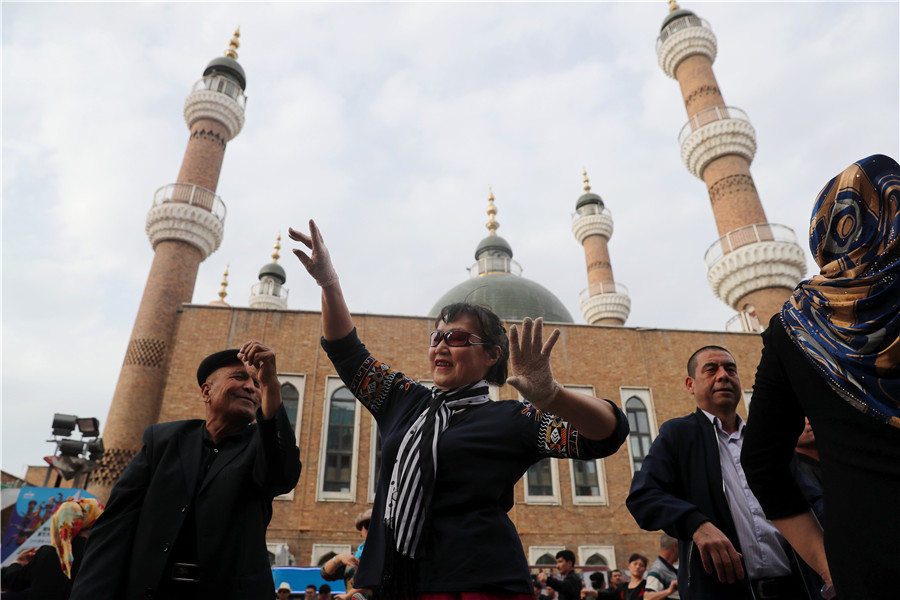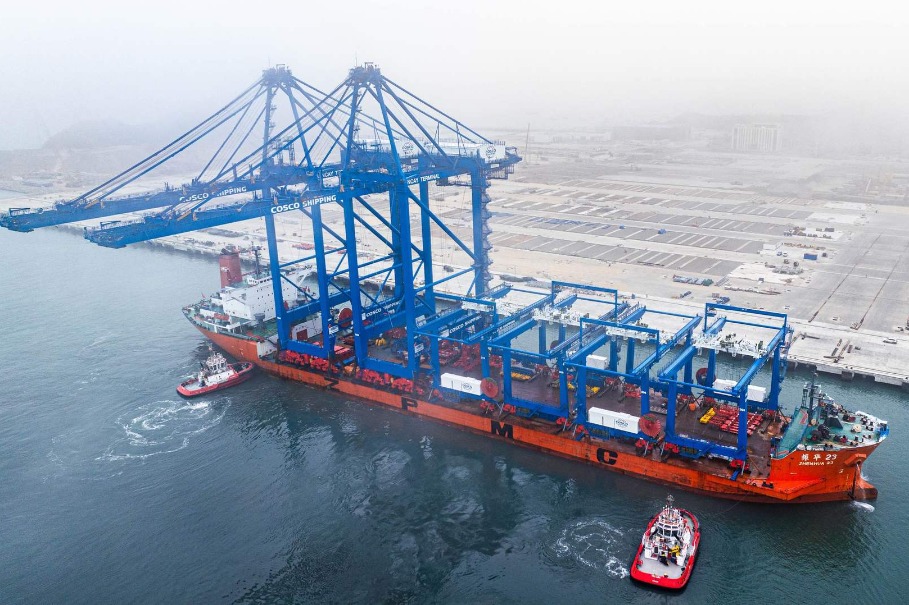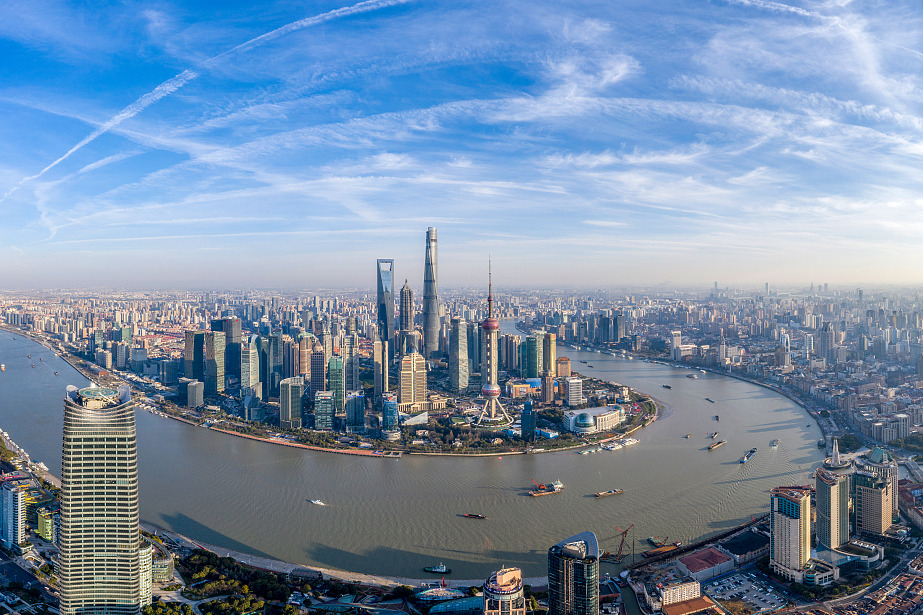Stability, development transform Xinjiang: China Daily editorial


Xinjiang today is embracing its best period in history with social stability, economic development, ethnic unity, religious harmony and people from different ethnic groups living a happy life. This was the message officials from the Xinjiang Uygur autonomous region delivered at a State Council Information Office news conference in Beijing on Tuesday.
Indeed, since the founding of new China seven decades ago, Xinjiang, home to 25 million Chinese of 47 ethnic groups, has witnessed profound changes and achieved huge progress. Statistics show the region's total economic volume increased 8.3 percent a year on average from 1952 to 2018. Last year, the region's imports and exports amounted to $20 billion, which was 1,481 times the figure in 1950.
The region has also done an impressive work in eliminating abject poverty, especially between 2014 to 2018 when it saw an accumulative 2.31 million people lifted out of poverty. Next year, Xinjiang will join hands with other parts of the country in reaching the goal of completely eliminating poverty. Beautiful, prosperous and now stable, Xinjiang appeals to a growing number of domestic and international tourists. In 2018, Xinjiang hosted more than 150 million visitors from both home and abroad, and the figure is projected to reach 200 million this year.
At present, the region is poised to embrace a stronger development momentum by riding the high tide of the country's Belt and Road Initiative. It is actively promoting connectivity with neighboring countries and enhancing economic cooperation and people-to-people exchanges with countries in West and Central Asia, Europe and even Africa.
Such a rosy picture would not have been achieved without the central government's efforts to uphold ethnic harmony and its policies to build lasting stability and long-term prosperity in Xinjiang.
Since the 1990s, Xinjiang had seen frequent incidents of violence and terrorist attacks instigated by the "three evil forces" of terrorism, extremism and separatism. Elements of these evil forces, under the cloak of religion, also tried to spread extremist ideology among people in Xinjiang, posing a serious threat to the region's stability and people's daily life.
In the past two years, China has successfully adopted a series of measures to counter terrorism and extremism in Xinjiang. These measures, including vocational education and training centers, have proven effective and significantly improved people's sense of security and happiness in Xinjiang. They have also won recognition from the international community.
Recently, 50 ambassadors to the United Nations Office in Geneva sent a joint letter to the president of the UN Human Rights Council and the high commissioner for human rights to voice their support for China's position on issues related to Xinjiang.
China's fight against terrorism and extremism in Xinjiang, as part of the international anti-terror efforts, should be supported and respected. Any attempt to vilify or distort China's efforts does a disservice to these efforts.

































